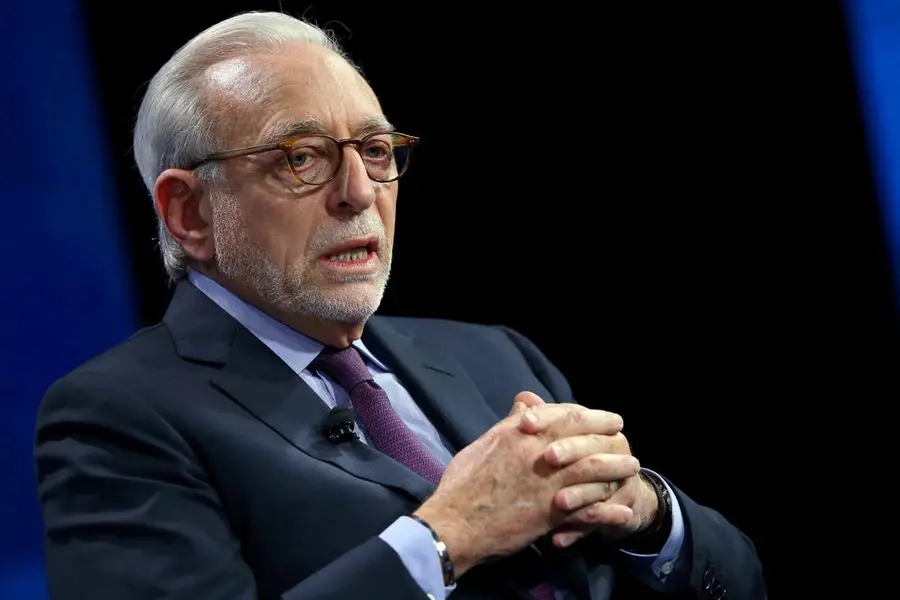PHOTO
NEW YORK - Billionaire investor Nelson Peltz lost but he also won.
Hours after shareholders voted to keep the octogenarian hedge fund manager off the board at Walt Disney, ending the year's most expensive and closely watched board room fight, there are few signs the defeat will hurt him or his business.
"I don't think this means anything for Nelson Peltz," said Ken Squire, the founder of research firm 13D Monitor which tracks activists. "He was never the favorite to win a proxy fight at Disney going up against (Disney CEO) Bob Iger."
With a personal net worth of $1.7 billion and a firm that oversees $10 billion in assets and has several winning bets in the portfolio this year, the 81-year-old manager is finding the silver lining in the loss, according to lawyers, bankers and industry analysts.
Peltz's Trian Fund Management owns more than $3.5 billion in Disney common stock, making it the fifth-largest investor in the entertainment conglomerate. Peltz said in a statement on Wednesday that Disney had announced new operating initiatives and capital improvement plans since he launched a new round of criticism in October.
The outcome has been positive, he added, noting that Disney's stock is up roughly 50% since October, when his firm began to re-engage with Disney, and is the best performer on the Dow Jones Industrial Average this year.
For his own investors at Trian, Peltz is delivering what they care about most - returns.
DISNEY GAINS FUEL TRIAN RETURNS
Disney is among several winners in the Trian portfolio this year. Others include Allstate which has gained 20% since January, British plumbing and heating products distributor Ferguson PLC, which is up 15% this year and food distributor Sysco, which has gained 8%, people familiar with the portfolio said.
In the first three months of 2024, Trian returned close to 10%, according to an investor. In the first two months of the year, the broader hedge fund industry gained 2.7% and the average activist investor was up 3.15%, according to Hedge Fund Research data.
While Disney's stock price is still far below its March 2021 peak, it has climbed 32% since January as Disney reinvigorates its film and television franchises and works to make its streaming business profitable.
Peltz is claiming, some investors say rightly, that he forced the home of Mickey Mouse to speed up its transformation ever since Iger returned from retirement in November 2022 to take the helm for a second time.
Activist investors like Peltz sometimes take credit when a company makes changes that were already under way before they showed up. But when they reap the benefits of a rising share price, investors are happy regardless of the outcome of a proxy contest, investors and lawyers said.
LESSONS FOR NEW PLAYBOOK
Peltz has waged only four fights since launching the firm in 2005 and win or lose, he has continued to take on new targets successfully. After Peltz lost his fight at DuPont in 2015, the chemical company's CEO left within the year, paving the way for Peltz to forge strong relations with the new CEO.
At Procter & Gamble in 2017, Peltz eventually joined the board and buried the hatchet with the chief executive, showing how activists and management can work collaboratively.
Similarly, other activists who lost proxy contests, including Bill Ackman at Automatic Data Processing in 2017, pursued other investments and thrived. Ackman returned an average 31% over the last five years.
The Disney fight may offer lessons to a new crop of less prominent activists. After activists had strong returns in 2023, many investors are ready to allocate more capital to the strategy and newcomers want a piece of that. But industry experts cautioned that the old-style playbook may no longer work.
The cult of personality is fading and lawyers and investors warn that the once popular practice of putting a hedge fund's well known principal on a slate to win board seats is no longer a surefire path to victory.
Peltz is among the best known investors around but when both Vanguard and BlackRock failed to endorse him for a seat at Disney, it suggested that activists may have to find industry experts to run as candidates on their slates.
The activists "will have to think about how they articulate their strategic premise so that it resonates better with passive investors," said Lyndon Park, who advises boards and management teams as head of ICR Shareholder Advisory.
At Disney, Peltz's message was that the company had lost its creative spark and bungled succession planning. But several investors said they wanted to see some strategic ideas from Peltz about how to make the company better.
"Nobody is bigger than the market and activists will have to adjust," ICR's Park said.
(Reporting by Svea Herbst-Bayliss in New York Editing by Matthew Lewis)





















